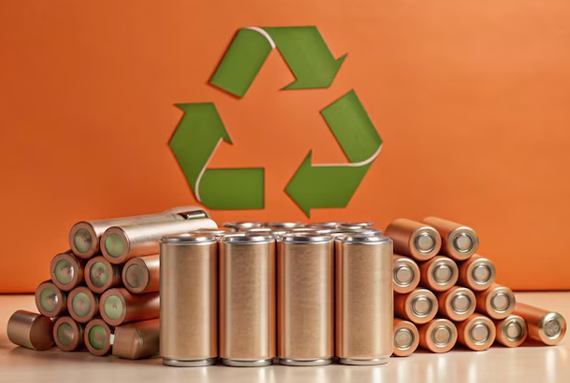Have Waste/Pickup?
Li-ion Recycling
Li-ion Battery Waste Management in the Indian Economy – Powering a Greener Tomorrow with BWM
As India accelerates its transition to electric mobility and digitalization, the demand for Li-ion batteries is skyrocketing. From smartphones and laptops to electric vehicles and energy storage systems, lithium-ion batteries have become essential. However, the growing usage has also led to a surge in battery waste, a pressing environmental challenge that demands urgent attention. At BWM, a leader among IT recycling companies in India and recognized for responsible electronic waste disposal in Mumbai, we’re driving innovative solutions for Li-ion battery recycling to protect the environment and conserve resources.
Why Li-ion Battery Waste is a Growing Concern
Discarded lithium-ion batteries contain hazardous chemicals and heavy metals like cobalt, nickel, and lithium. When improperly disposed of, they can leak toxins into the soil and water, harm ecosystems, and even pose fire and explosion risks.
As one of the top e-waste recycling companies in Mumbai, BWM ensures that battery waste is handled through regulated, sustainable methods that comply with India’s emerging e-waste and hazardous waste frameworks.
Challenges in Li-ion Battery Waste Management in India
1. Lack of Consumer Awareness
Most users discard batteries in the general waste bin, unaware of the environmental consequences or the availability of specialized recycling options.
2. Insufficient Infrastructure
India’s current recycling systems are not yet equipped to handle the volume and complexity of Li-ion waste, especially in Tier 2 and 3 cities.
3. Informal Sector Risks
Unregulated recycling in the informal sector poses threats to worker health, environmental safety, and compliance with waste norms.
4. Regulatory Gaps
While India has introduced e-waste rules, clear guidelines for Li-ion batteries are still evolving, making demolition waste recycling in Mumbai and similar sectors more regulated than battery disposal at present.
BWM's Lithium-Ion Battery Recycling Process
We follow a safe, scientific, and scalable approach to Li-ion battery recycling:
Collection
We gather used batteries from homes, businesses, electronic retailers, and OEM take-back programs.
Safe Discharge
Before processing, all batteries are safely discharged to eliminate residual charge and prevent fire or short circuits.
Sorting
Batteries are sorted based on type, size, and chemistry for proper treatment, similar to how we handle electronic waste disposal in Mumbai.
Shredding
Batteries are shredded in a controlled environment, separating metals, plastics, and electrolytes.
Heating
The shredded material is heat-treated to eliminate organics and retrieve a black mass containing lithium, cobalt, and other metals.
Metal Recovery
We use hydrometallurgical techniques to extract and refine valuable metals like lithium, cobalt, and nickel for reuse.
Reuse in Manufacturing
Recovered materials are used to manufacture new batteries or in secondary applications, closing the recycling loop.
Environmental & Economic Impact
Environmental Benefits
- Prevents hazardous waste contamination
- Reduces demand for raw mineral mining
- Supports India’s carbon neutrality goals
Economic Gains
- Reduces import dependency on metals
- Encourages local circular economy
- Creates jobs in green technology & waste management
As a responsible player among e-waste recycling companies in India, BWM also contributes to initiatives like medical waste management services in Mumbai and demolition waste recycling in Mumbai, ensuring a holistic approach to waste reduction.
FAQs – Li-ion Battery Waste Management
Why is Li-ion battery waste hazardous?
These batteries contain toxic chemicals and metals that can pollute soil, water, and air if disposed of improperly.


